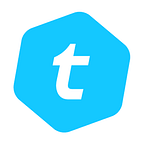Fully digital remittances are growing since the onset of COVID-19. Telcoin is well positioned for a strong entry into the Indian market.
By: Jeff Quigley
Blockchain and cryptocurrency enthusiasts worldwide rejoiced last month when India’s Supreme Court overturned a ban on cryptocurrency trading, opening the door for exchanges and other digital asset-focused businesses to make their mark on the country of nearly 1.4 billion.
The Reserve Bank of India (RBI) imposed the ban in April 2018, which barred domestic financial institutions from working with companies that dealt with Bitcoin and other cryptocurrencies. At the time, RBI cited concerns that cryptocurrency adoption could destabilize the country’s traditional financial system, and also argued that digital tokens should not be treated as “currencies” since they do not exist in a physical form backed by a government. RBI’s notice led many of India’s domestic exchanges and crypto startups to cease or severely limit operations, creating something of a blockchain void that both old and new players are now hoping to fill.
“The uplifting of the ban by [the] Supreme Court is going to open new opportunities for India in terms of investments, economy, and a market as a whole,” Sumit Gupta, founder and CEO of local exchange CoinDCX, told Coindesk. “As few of the surviving petitioners of the case, we are thankful to the Supreme Court for hearing our side of the story. We have always seen crypto as a potential to unlock India’s dream of becoming a US$5 trillion economy.”
Gupta estimates that only 5 million of India’s more than 1.3 billion people currently hold cryptocurrencies, leaving room for enormous growth potential in the market.
That opportunity has not gone unnoticed. Within weeks, investors have rushed to invest in the newly invigorated Indian crypto space, with CoinDCX raising US$3 million from Bain Capital and BitMEX. Mumbai-based CoinDCX also noted that new user signups had increased 10-fold since the Supreme Court’s decision was made public. San Francisco-based exchange Kraken recently said it would “recommit” to the Indian market, and Malta-based OKex reported a 545 percent increase in site visits from India since last month. All are strong indicators of renewed interest in the burgeoning Indian crypto ecosystem.
Last November, industry heavyweight Binance purchased Indian exchange WazirX and established a US$50 million fund for investing in domestic blockchain projects — a preemptive move that will likely pay dividends now that the ban has been lifted.
Cryptocurrency adoption could bring positive disruption to India’s already robust fintech ecosystem, dominated by local giants like PayTM and Flipkart. Speaking to Cointelegraph, one Indian emerging technology expert said, “Crypto startups can bring those unbanked into the banking fold and further the cause of financial inclusion. India retains the top spot when it comes to foreign remittances, and crypto can not only reduce turnaround time but bring down remittance costs drastically.”
India’s digital payments space is expected to grow by more than 20 percent over the next four years, faster than anywhere else in the world. As physical cash disappears, the case for digital remittance services that work with existing mobile wallets grows stronger. Telcoin, which is already positioning itself to be among the fastest and most affordable remittance providers, could also become a conduit for mass adoption of TEL and other cryptocurrencies among Indians and the Indian diaspora.
US$78.6 billion was sent to India in 2018, making it the top recipient of international money transfers globally and accounting for 14 percent of the total market. While remittances to South Asia cost an average of 5.4 percent — lower than the roughly 7 percent global average — there’s still room for improvement. The United Nations’ Sustainable Development Goals aim to reduce the average cost of sending money to 3 percent by 2030. Telcoin is already targeting 2.5 percent, 10 years ahead of the curve, and our ability to someday incorporate TEL in the flow (in markets where we have gained approval to deal with cryptocurrencies) could lower costs even further.
Telcoin applauds the Indian Central Bank’s decision and is excited for the potential for blockchain and cryptocurrencies to increase financial inclusion and lower costs for Indians. Due to the massive remittance market, India has been on Telcoin’s radar since the beginning, and we’ve already begun re-engaging our potential partners on the ground. The team is always following crypto-related developments globally and look forward to bringing Telcoin to India and elsewhere in South Asia in the near future.
Telcoin. Send money smarter.
